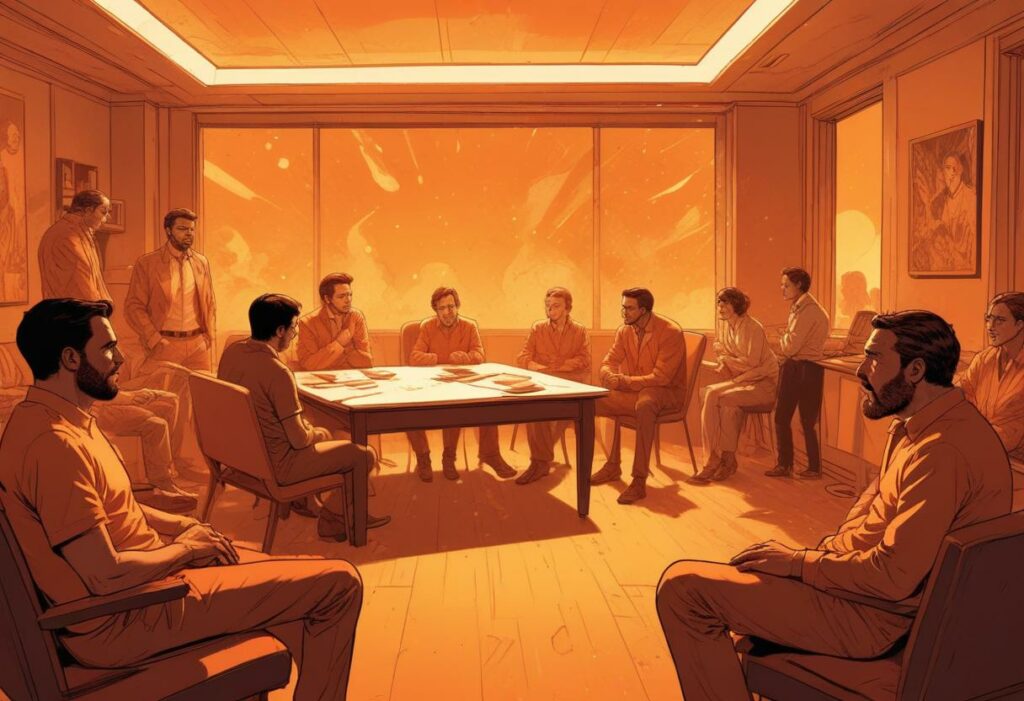ConstitutionDAO was one of the most visible DAO experiments that catapulted decentralized autonomous organizations into mainstream consciousness in 2021. But what has become of this once-popular DAO?
Join us as we explore the rise and evolution of this decentralized organization that tried to buy the U.S. Constitution.
What was ConstitutionDAO?
In case you are wondering, ConstitutionDAO is a decentralized autonomous organization, essentially a group of individuals coming together for a shared interest or goal. The Web3 collective was formed in November 2021 as Sotheby’s announced the auction of a rare original copy of the Constitution. The goal was to crowdfund bidding on a rare first printing of the U.S. Constitution at auction.
ConstitutionDAO touted itself as an experiment in collaborative governance and decentralized cooperation. Participants could contribute to the crowdfund in exchange for governance tokens. The collective was able to raise over $47 million from roughly 17,435 contributors but ultimately lost the auction.
But despite losing, ConstitutionDAO helped demonstrate the potential of cooperatives united by a shared purpose. It embodied decentralized coordination around a time-sensitive goal but grappled with issues defining its ongoing raison d’être.
How it All Began
ConstitutionDAO emerged quickly as the Sotheby’s auction was announced in mid-November 2021. The idea originated on Twitter from early Web3 community members and as momentum coalesced around the concept, a Juicebox crowdfund was launched.
Enthusiasm for the concept as both a political statement and a crypto experiment exploded across social media. The DAO rapidly gained thousands of members contributing to the crowdfund in its first days.
Crowdfunding Phase
ConstitutionDAO’s crowdfunding unfolded swiftly in November 2021. The project reportedly raised $3 million in its first 12 hours. Contributors sent 17,437 ETH worth $47.4 million at the time to the Juicebox crowdfund. They received governance tokens called $PEOPLE representing voting shares proportional to contribution.
Most contributions were small, around 0.1 ETH, but some large donations exceeded 500 ETH. Metaversal CEO Yossi Hasson was the DAO’s largest contributor at 1,000 ETH ($4.2 million).
The crowdfund closed right before the auction on November 18 after exceeding the highest bid target. The two-week crowdfund displayed the potential for decentralized cooperation but also signs of miscoordination.
Losing the Auction
Despite the successful crowdfunding raise, ConstitutionDAO failed to win the auction. The DAO bid up to $47 million but lost in the auction’s final moments to a $43.2 million bid ($47 million with fees).
Critics noted that the crowdfund substantially overfunded beyond what was minimally required to preempt any rival bidders. Poor communication, bot attacks, and duplicate multisig approvals also hampered bid coordination. The auction winner remained anonymous but was revealed later to be billionaire Kenneth Griffin.
Losing the auction raised tough questions for ConstitutionDAO on executing effectively as a decentralized entity.
Post-Auction Analysis
After the loss, the DAO struggled with existential questions over the coming months on whether the community should continue or be disbanded. While some members expressed hope that the group could live on to pursue another goal, the organizers behind ConstitutionDAO decided to shut the group, agreeing that contributors would be able to get refunds indefinitely.
Graham Novak, a ConstitutionDAO organizer, stated in the group’s Discord that “the community [had] taken all actions that it was organized to accomplish.” He wrote:
“We have determined that building and maintaining an ongoing project is not something that we as a core team are able to support, given the technical and administrative requirements of doing it properly.”
As of press time, contributors could either claim their unclaimed $PEOPLE token or burn their claimed/unclaimed $PEOPLE token in exchange for ETH.
Meanwhile, the $PEOPLE governance token originally representing auction contribution rights remains actively traded. However, the price has crashed from around 16 cents ($0.16) at the time of launch to under $0.01.
SpinOffs
PeopleDAO
PeopleDAO emerged in December 2021 as an experimental community spun out of contributors from the prominent ConstitutionDAO project. The project was officially birthed after a Snapshot vote on Dec 6th, and according to its website, the DAO incubates subDAOs and projects that further web3 and social good.
As of June 2022, the collective had incubated two subDAOS, PandaDAO and LanguageDAO, and one community project, Constitution Fractionalized.
ConstitutionDAO2
One year after ConstitutionDAO failed at its attempt to buy the U.S. Constitution, another DAO was created to achieve the same mission. Known as ConstitutionDAO2, the group took a shot at purchasing a different copy of the Constitution that was to be auctioned on December 13.
Sadly, this dream was short-lived after Sotheby’s postponed the auction until further notice.
Like its predecessor, offered to refund contributors, giving them the choice to either mint an NFT or claim their refund.
Conclusion
With the exception of PeopleDAO, both ConstitutionDAO and ConstitutionDAO2 appear to have gone into oblivion. The Twitter pages of both DAOs have been hugely dormant since the beginning of 2023. While it is certain that the original ConstitutionDAO is out of the market, it is unclear if its successor will make a comeback if another copy of the Constitution is put up for sale.
ConstitutionDAO’s swift formation and dramatic arc exemplified the double-edged potential of decentralized collaboration. Its ability to rapidly crowdfund millions unified by idealism collided with the growing pains of distributed coordination. Technical and incentive instruments alone proved insufficient without devoted membership driving toward a shared purpose and strong community bonds. ConstitutionDAO remains symbolic of this complex interplay between the remarkable possibilities DAOs offer and their non-trivial practical challenges. As the DAO landscape matures from speculation toward cooperation, ConstitutionDAO’s story provides lessons for navigating intricacies on the path to organizations optimized for the digital era.





